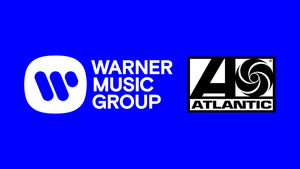A US judge has removed Warner Music and the current incarnation of its Atlantic Records label from a lawsuit filed by artist manager Jan Reog, who alleges that late Atlantic founder Ahmet Ertegun sexually abused and assaulted her multiple times while working with his label from the early-1980s to the mid-2000s.
Warner Music Group Corp and Atlantic Records Group LLC were both targeted in Reog’s litigation, alongside the original Atlantic Records company, called Atlantic Recording Corp, and the Ertegun estate. Warner and the current Atlantic label argued that they can’t be liable for Ertegun’s conduct in the 1980s and 1990s, because they didn't exist at that time.
“Defendants argue that because their companies did not exist during the period in which Ertegun allegedly injured plaintiff, they had no duty to protect plaintiff from Ertegun’s assaults”, Judge Gerald Lebovits writes in this judgement, adding, “This court largely agrees”.
However, Reog’s case against Atlantic Recording Corp and the Ertegun estate continues. To that end, her attorney Lawrence M Pearson at law firm Wigdor LLP told Law360, “Ms Roeg and we are looking forward to proceeding with the case against Atlantic and the estate of Mr Ertegun”.
Reog’s lawsuit was filed under New York’s Adult Survivors Act, which allowed alleged victims of sexual assault whose claims would usually be barred by the statute of limitations to file new legal proceedings.
She alleged numerous incidents of misconduct on Ertegun’s part while she was working with his label - both as a talent scout and a manager with artists signed to the record company. Management at Atlantic Recording Corp in the 1980s and 1990s, she claimed, were fully aware of Ertegun's conduct but turned a blind eye to it.
Both Warner Music Group Corp and Atlantic Records Group LLC said they couldn’t be held liable for negligence in relation to Ertegun’s alleged conduct because they were incorporated in 2003 and 2020 respectively. Warner Music Group was created as part of Edgar Bronfman Jr’s 2004 deal to buy the music assets of Time Warner.
While that fact meant the two companies couldn’t be held directly liable for negligence, Reog argued that they were, in fact, “corporate successors” to Atlantic Recording Corp and therefore there was a case for “successor liability”.
In his ruling, Lebovits notes that, as a general rule, companies that acquire the assets of another are not usually liable for “the torts of its predecessor”, torts being civil wrongs that cause harm or loss resulting in legal liability.
There are exceptions to that principle, including in the case of mergers or where a new company is basically a direct continuation of an old company. However, Lebovits concludes, none of those exceptions apply in this case.
The last of the alleged incidents of misconduct by Ertegun referenced in Roeg’s lawsuit actually took place in 2005, by which point Warner Music Group Corp did exist.
However, Warner argued that Ertegun was an employee of Atlantic Recording Corp, and it was simply a holding company with no direct control over Atlantic's employees. Lebovits agreed and said, on that basis, Warner couldn’t be liable for even the later incidents.
While trying to get itself removed from the lawsuit, Warner Music has also been keen to stress ever since Roeg launched her legal action that the corporate culture described in her lawsuit - even if proven to be a valid description of what happened in the 1980s and 1990s - is far removed from the way the major music company operates today.

